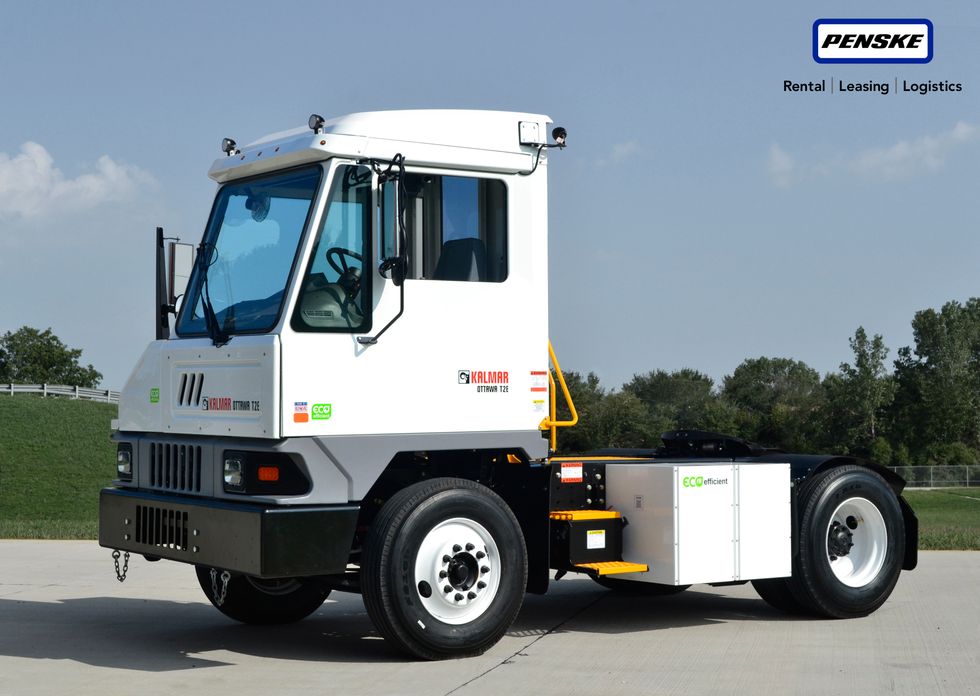
Penske Logistics Helping Cardinal Health Test Commercial Electric Vehicles
Penske Logistics customer Cardinal Health has been employing a pair of Kalmar T2E electric truck yard tractors at its Riverside, California, facility for the last year. The overarching goal is to assess how implementation of electric vehicles can establish more efficient and sustainable operations.
The EV trucks feature Kalmar's latest lithium-ion battery technology and a fully electric powertrain that produces zero emissions at source and have combined to reduce carbon dioxide emissions by 79 metric tons, equating to 9.5 homes' energy use for one year (on average). The trucks operate within Cardinal Health's yard and transport a daily average of 120 trailers and ocean containers containing essential medical products and supplies to and from their docking area.
"This electric yard tractor pilot is part of our strategic focus on emerging technologies in transportation and logistics," said Katie Blohm, director of logistics at Cardinal Health. "We are committed to exploring, testing and learning how we can apply new capabilities within our supply chain to drive efficiencies and sustainability, reduce costs, and improve service and reliability for our customers and their patients."
The Cardinal Health Riverside facility houses two EV charging stations to help ensure ongoing usability of the trucks during its 24/7 operations. The location serves as a replenishment center for their western U.S. forward medical distribution center locations and large high-volume customers.
"This is the latest development in an ongoing collaborative effort to bring continuous innovation to Cardinal Health," explained Marc Althen, president of Penske Logistics. "We work to ensure that customers like Cardinal Health can achieve greater efficiencies through sustainable technology opportunities."
Cardinal Health is a distributor of pharmaceuticals, a global manufacturer and distributor of medical and laboratory products, and a provider of performance and data solutions for healthcare facilities.
This project was supported by the California Climate Investments (CCI) program and the California Air Resources Board CORE program.
By "Move Ahead" Staff
